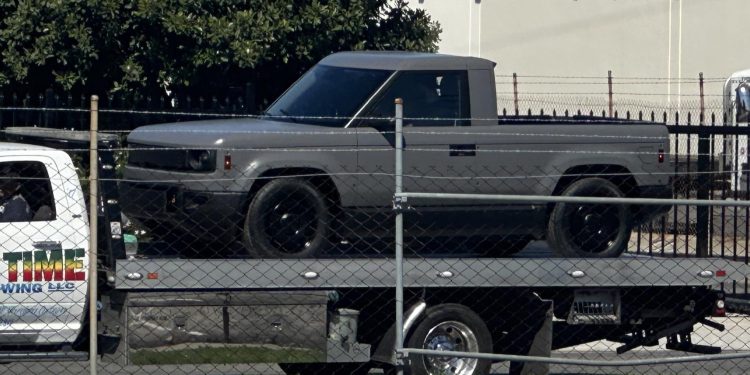Bezos-backed EV startup Slate reveals modular pickup and SUV with $25k target price
A new US-based EV startup backed by Amazon founder Jeff Bezos has made a dramatic entry into the market, with Slate Auto unveiling its first electric pickup and SUV prototypes ahead of a formal launch on April 24.
The company, quietly founded in Michigan in 2022, has raised over US$110 million in funding to date and includes several former Harley-Davidson and Stellantis executives in its leadership team. Among its investors is Bezos himself, along with other high-profile figures, including Guggenheim’s Mark Walter.
Slate’s debut vehicle is a compact two-door electric ute aimed at first-time vehicle buyers, with a target starting price of just US$25,000. The entry-level variant – known as the “Blank Slate” – is designed to be customisable, with owners able to add accessories, body panels and upgrades over time. The company has trademarked the slogan “We built it. You make it” to reflect this modular approach.
Though full specifications will be announced at the official unveiling, sightings of early prototypes on public streets in California have shown a vehicle with off-road styling, short overhangs, chunky tyres, and removable or swappable roof and bed modules. Variants include a pickup configuration, a fastback-style SUV, and one with a hard canopy resembling a compact 4×4.
What does cat therapy have to do with it?
The vehicles were spotted wearing unusual camouflage liveries that mimicked fictional businesses such as a baby ride-share service and a mobile cat therapy van. The unconventional campaign was designed to spark curiosity ahead of the formal launch, with the prototypes deliberately parked in public locations without context or branding. QR codes on the vehicles directed onlookers to Slate’s countdown website.
Slate plans to begin production in late 2026. Its vehicles will focus on affordability, modularity and DIY ownership, with the company reportedly developing an open-source learning platform dubbed “Slate University” to help customers with repairs and upgrades.
Low-cost gains attention
While questions remain around battery specs, range, and safety features, the company’s low-cost, customisable approach and high-profile backers have attracted significant attention. Slate says it will rely on off-the-shelf EV components to keep production costs down.
The launch comes at a time when most EVs still sell for well above US$50,000, and affordable electric options remain limited. Slate aims to disrupt the sector by offering a functional, versatile vehicle at less than half the average price – but whether it can deliver at scale remains to be seen.
Slate’s official launch event will take place on April 24 at Long Beach Airport, California.










